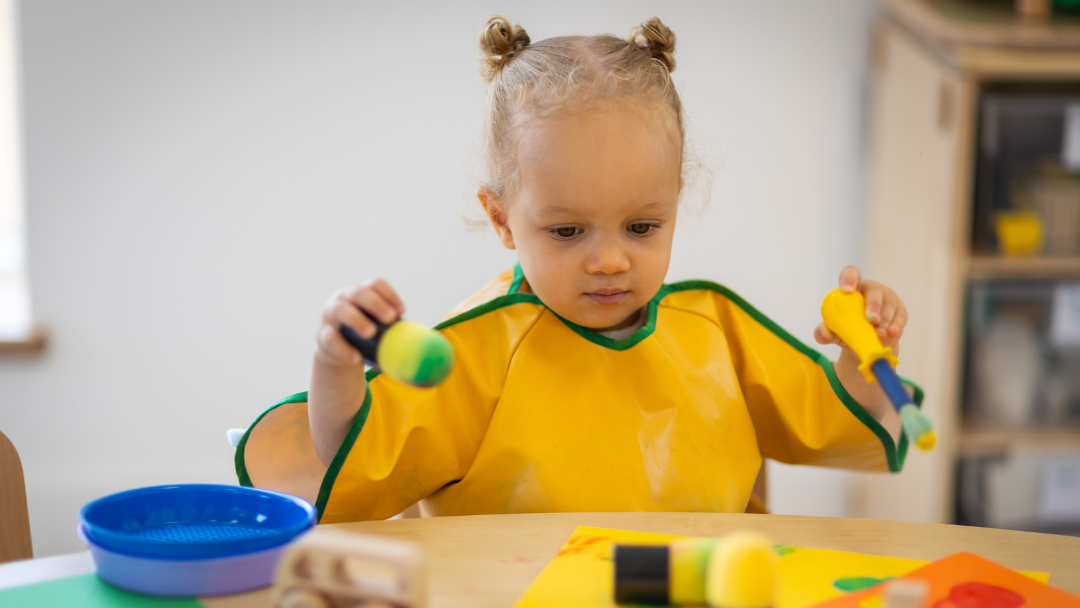Leadership in the Early Years isn't about job titles or hierarchy, it's about connection and creating positive change. It’s about the everyday decisions that shape a nurturing environment for children, while also uplifting the team of adults who care for them.
As Jillian Rodd reminds us in Leadership in Early Childhood, leadership is not a static trait. It’s a continual process of growth, rooted in reflective practice, strong values and a genuine commitment to improving outcomes for children and families.
At Fennies, we believe that anyone in an Early Years setting has the potential to lead, from new Educators to Room Leaders and beyond. That’s why we’ve developed leadership programmes that not only teach skills, but also cultivate self-awareness, resilience and emotional intelligence.
What Leadership Really Means in Early Years
In Early Years settings, leadership can often be misunderstood. It’s not about authority or decision-making in isolation. Instead, it’s about:
- Inspiring a shared vision
- Listening with empathy
- Supporting others to grow
- Ensuring that children remain at the heart of every decision
Leadership is both individual and collective. Effective Early Years leaders know how to take initiative, but they also understand the value of shared responsibility. At Fennies, we encourage educators to see leadership as influence through relationships, not hierarchy.
"My journey from Nursery Manager to Senior Support Manager at Fennies has been incredibly rewarding for my leadership development. Each step has brought new challenges and learning opportunities – from leading a single setting to now supporting multiple teams. Being part of such an inspiring team, within a company that maintains a true family feel, has made all the difference. Fennies not only offers high-quality training, but also fosters a culture that nurtures growth, allowing me to lead with confidence, empathy, and strategic vision." - Loren, Senior Manager at Fennies Nurseries
An Educator, Room Leader or Manager might demonstrate leadership by:
- Supporting a colleague through a challenging key child relationship
- Leading a reflective practice discussion after a difficult day
- Innovating a new approach to curriculum planning and bringing the team on board
Making the Shift: From Educator to Leader
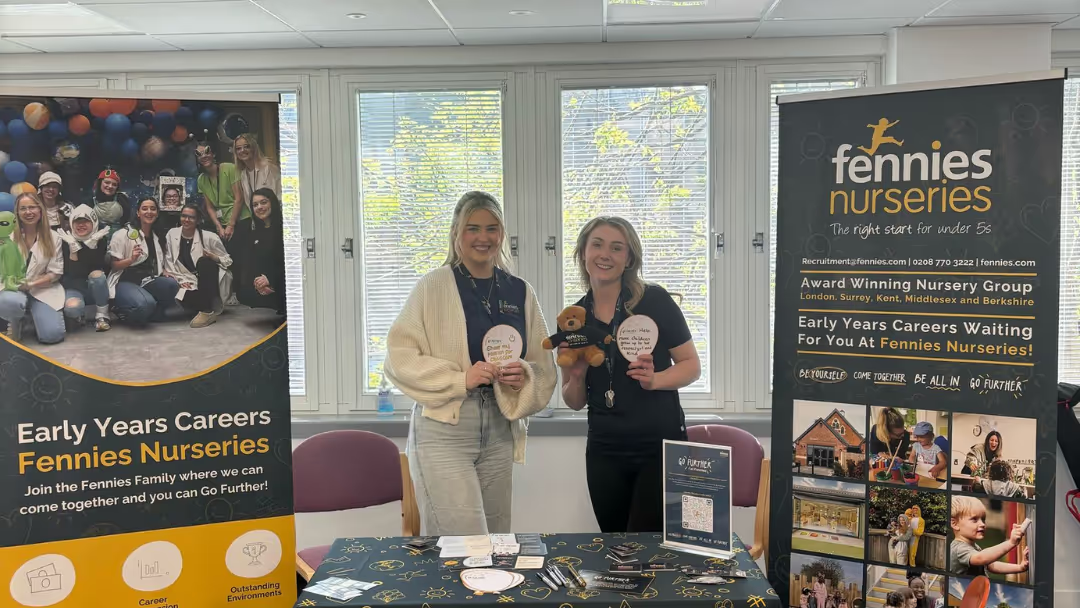
Becoming a leader in Early Years often happens gradually and sometimes unexpectedly. A passionate educator might find themselves managing a room, coordinating rotas, supporting apprentices or even influencing how their team delivers care and learning. But the internal transition from educator to leader is just as important as the external one.
This transition requires:
- Reframing Your Identity: Seeing yourself as both an educator and a mentor
- Developing Self-Confidence: Understanding that you can lead even if you don’t have all the answers
- Managing Relationships: Navigating the shift from peer to leader without losing trust
At Fennies, we support this process through our Room Leader Programme, which blends:
- Peer learning and coaching
- Scenario-based training
- Reflective supervision sessions
- Opportunities for aspiring leaders to shadow senior staff
By acknowledging that leadership development is a process, not an overnight transformation, we help build confident, grounded professionals who lead with intention and trust.
Discovering Your Unique Leadership Style - Be Yourself
Leadership doesn’t look the same for everyone, and it shouldn’t. Some people lead through vision and energy. Others lead through structure, consistency or calm problem-solving. At Fennies, we celebrate this diversity of leadership through our DNA pillar Be Yourself, which recognises that the most effective leaders are those who embrace their unique qualities.
One of the most empowering steps a new leader can take is understanding and embracing their own natural leadership style. That’s why we use CliftonStrengths to help individuals uncover the talents they bring to leadership, not to change who they are, but to elevate it.
Understanding your strengths:
- Builds self-awareness
- Helps leaders avoid imposter syndrome
- Improves team dynamics by encouraging diverse leadership styles
Leadership isn't about having all the answers, it's about creating a space where others feel empowered to find them. I focus on bringing together the right people who share the same vision and passion for growth. When you surround yourself with a team eager to learn, my job becomes giving them the right tools, support, and trust to succeed together" - Claire, Nursery Manager at Fennies Croydon, Lower Addiscombe Road
Strong leadership begins with knowing yourself. Because when you're empowered to be yourself, you can lead others with authenticity, clarity, and purpose.
Building a Positive and Purposeful Team Culture
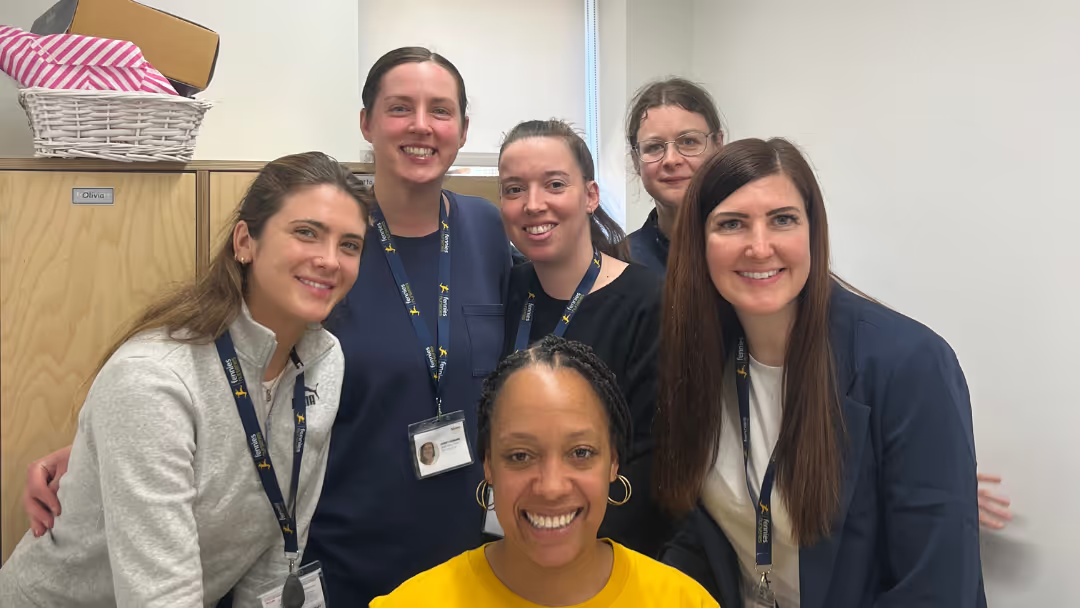
Great leaders create collaborative environments where others can thrive. In Early Years settings, team culture affects everything: from team morale, to consistency of care, to how children experience the day.
A leader helps shape this culture by:
- Setting a positive tone in daily briefings
- Welcoming feedback and encouraging open communication
- Resolving conflicts early with emotional intelligence
- Celebrating wins, big or small, from a colleague’s creative activity to a breakthrough moment with a child
At Fennies, we train leaders to think about the emotional atmosphere they create. Leadership is contagious! Your tone, your pace and your expectations; these ripple through the room. That’s why leadership in Early Years is just as much about presence and attitude as it is about procedures.
The Power of Delegation and Shared Responsibility - Come Together
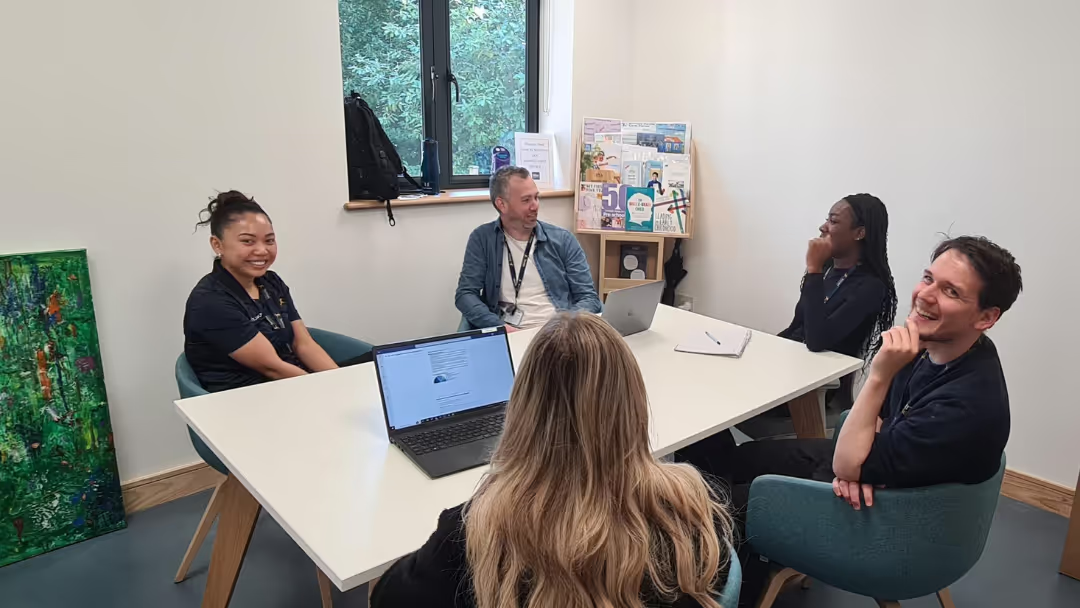
Leadership doesn't mean doing everything yourself. In fact, the best leaders are those who trust their team, delegate responsibilities effectively and empower others to contribute in meaningful ways. At Fennies, our Come Together pillar is all about collaboration, trust and building each other up. Great leaders know that empowering others is not a sign of weakness, but a sign of strength.
Rodd refers to this as distributed leadership, an approach where leadership is shared across a setting, not held by one person.
At Fennies, we support leaders to:
- Match tasks with strengths: Who’s best at planning creative activities? Who’s confident with SEND paperwork?
- Provide clear expectations and follow-up: Delegation isn’t about “passing things off,” but guiding others to succeed
- Encourage autonomy while staying available for support
When leaders and teams Come Together, everyone benefits. The load is shared, potential is unlocked and leadership becomes a collective journey of growth.
Handling Difficult Conversations and Conflict Resolution
All leaders will face difficult moments. When a team member’s performance slips, or when tensions arise, or when decisions are questioned. These are all defining moments that test and build leadership capacity.
At Fennies, our leaders are trained in:
- Active listening: Focusing on understanding, not just responding
- Using “I” statements: Communicating personal observations without blame
- Using HR frameworks: Understanding processes like absence management, appraisals and support plans
- Maintaining confidentiality and professionalism
Conflict doesn't automatically mean failure, it’s often the start of honest dialogue and improvement. Leaders who approach issues early and sensitively are more likely to preserve trust and stability within their teams.
Leading Through Reflection and Lifelong Learning
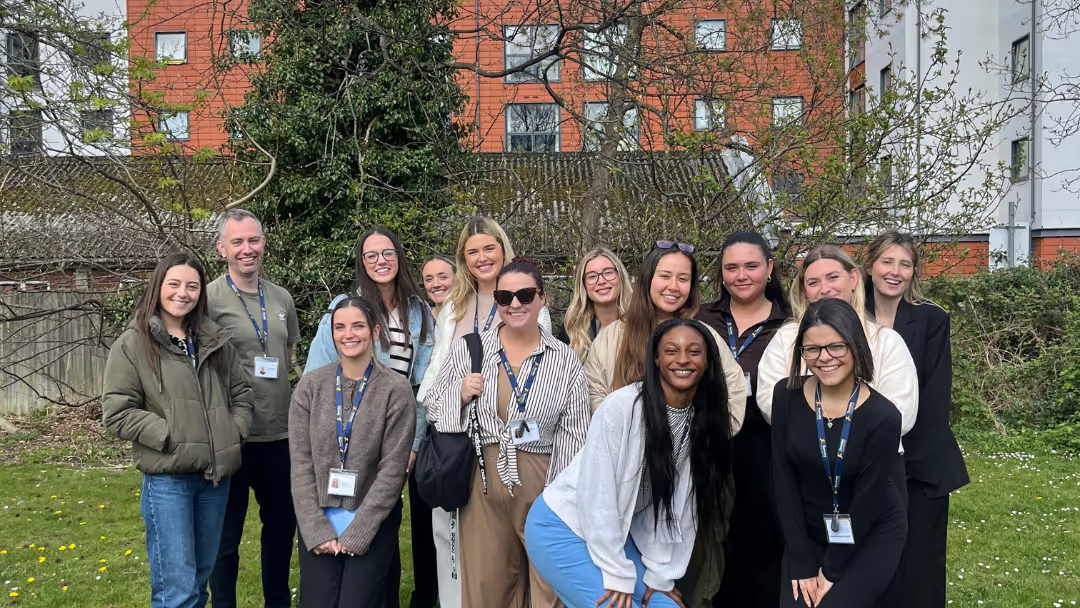
One of the most powerful habits of a strong leader is reflection. Great leaders regularly ask:
- What went well today?
- What could I have handled differently?
- How is my team feeling?
- What do the children need right now?
At Fennies, reflection is built into leadership development through:
- Weekly reflection journals
- Leadership coaching sessions
- Peer observations and feedback loops
This reflective mindset helps leaders adapt, grow and stay responsive which are all crucial qualities in a sector that constantly evolves. Reflective leadership helps to keep values and practices aligned, even if times become challenging.
Being a Role Model, Every Single Day
A lot of what children learn in a nursery is from the people and their actions, rather than just the curriculum itself. A leader in Early Years helps form a culture that children regularly absorb. Children will regularly digest how adults speak to each other whether that be parents or colleagues, or how they handle stress, so the characteristics they display can set the tone for the whole setting, especially those within leadership positions.
Being a leader means being mindful of how you show up, because your energy becomes the emotional climate of your team, and your team’s energy plays a huge part in shaping the children’s experience. When we lead with authenticity, empathy and consistency, we teach children something powerful!
Final Thoughts: Leadership Is Grown, Not Given
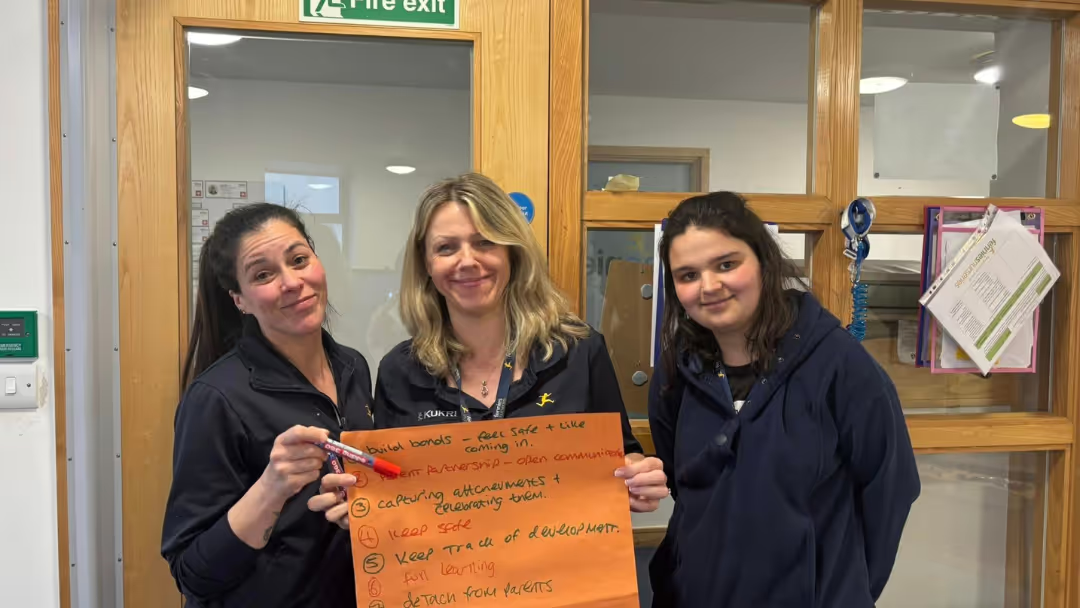
Leadership in Early Years is not as simple as just climbing a ladder. It’s about cultivating your capacity to make a difference, every day.
At Fennies, we’re committed to supporting Early Years professionals at every stage of their journey. Whether you're a new educator with potential or an experienced Room Leader ready for your next challenge, we believe leadership can be learned, refined and shared.
As Jillian Rodd wisely reminds us, the most impactful leaders in Early Years are not those who seek power, but those who seek positive change, for children, for families and for their teams.
FAQ
Subscribe to our newsletter
Stay up to date with Fennies news


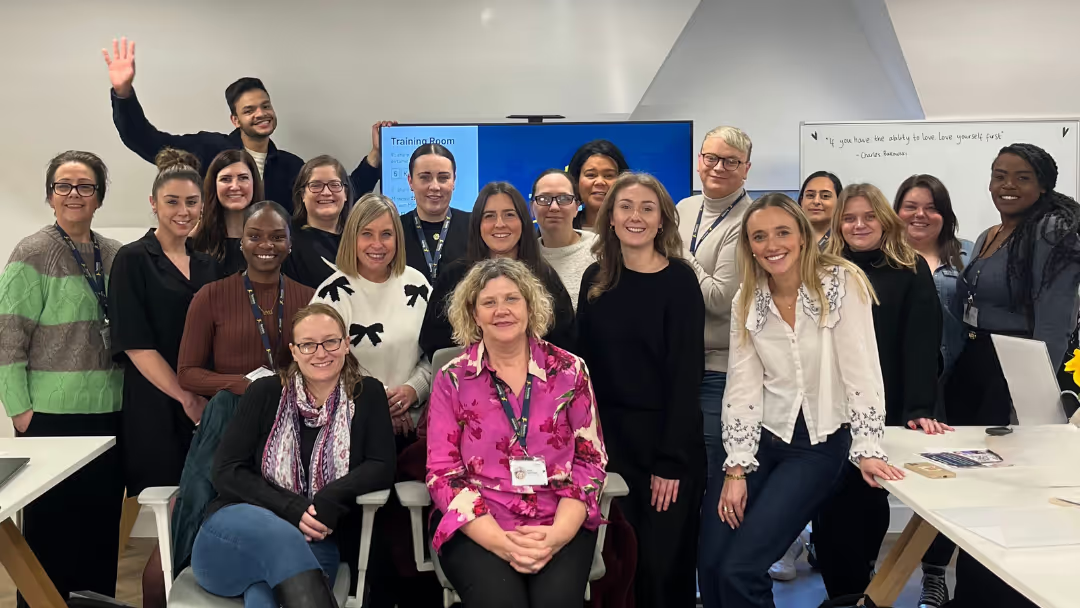
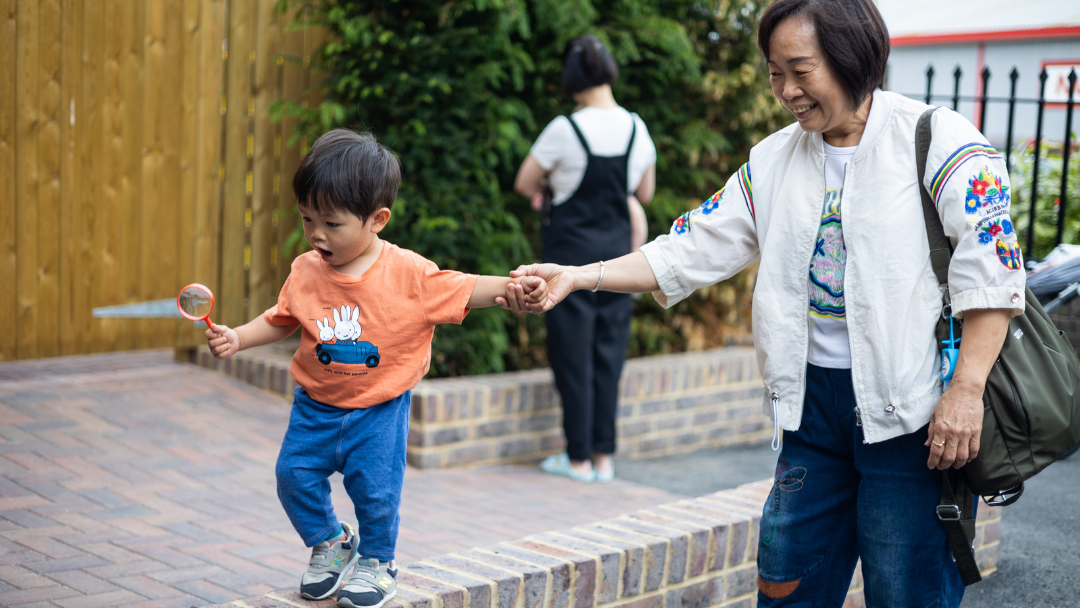

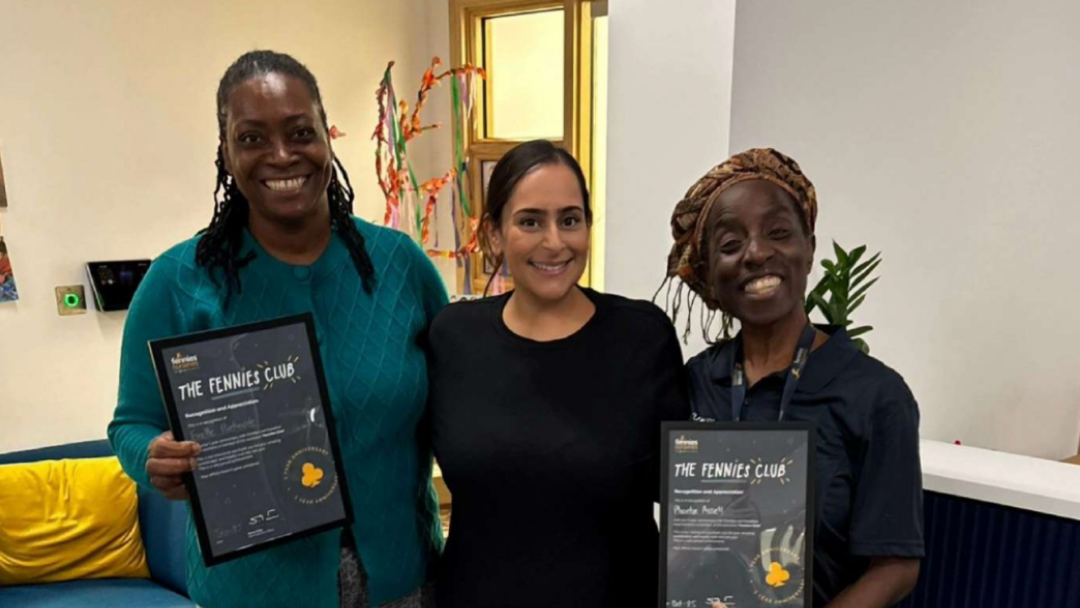
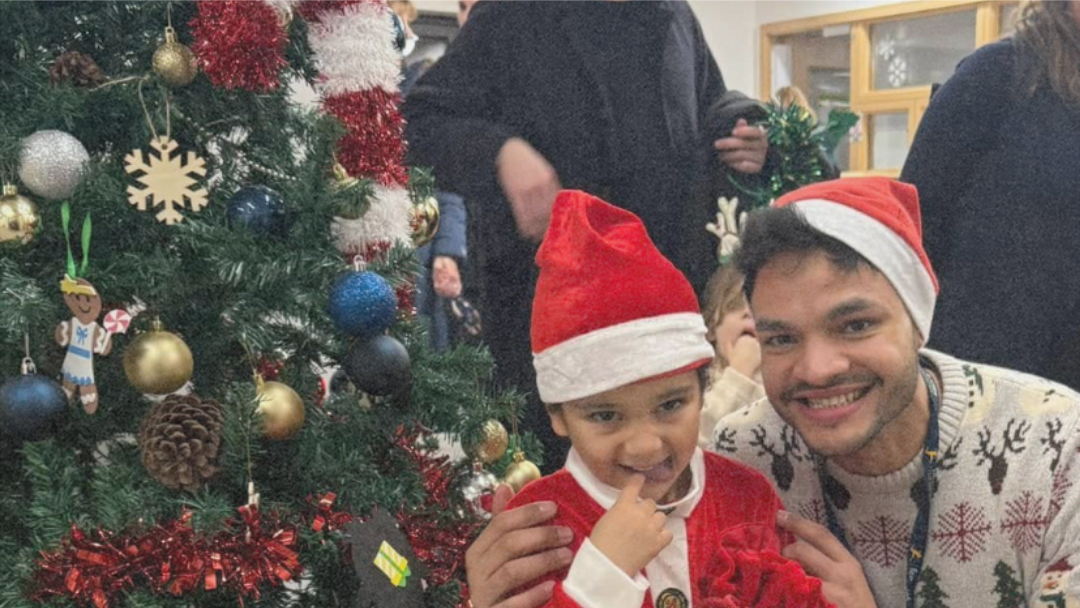
.png)
